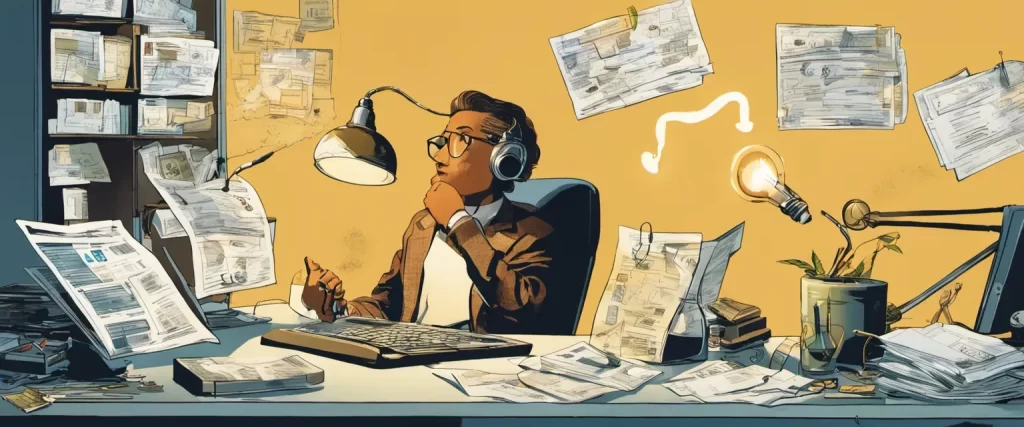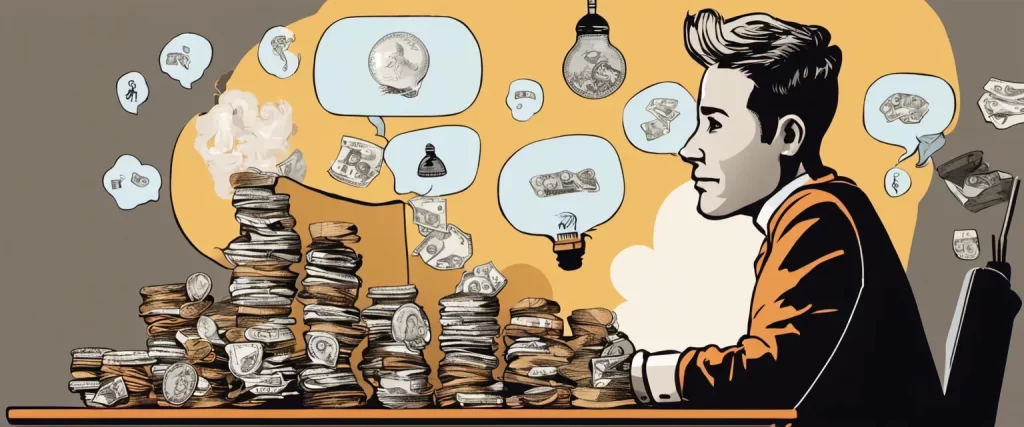The Big Short: Gaining a Powerful Financial Mindset

In an era where money speaks louder than ever, it is crucial to unravel the secrets behind financial success. And what better way to start than by delving into the captivating pages of Michael Lewis’ book, The Big Short. In this eye-opening masterpiece, Lewis takes us on a rollercoaster ride through the financial world, exposing the mindset required to navigate the treacherous waters of Wall Street. As we explore the fascinating tales of those who foresaw the bursting of the housing bubble and emerged victorious amidst the chaos, we uncover invaluable lessons that can shape our own financial future. Join us as we embark on a journey to understand the importance of cultivating a financial mindset that challenges conventional wisdom, embraces calculated risk, and holds steadfast in the face of uncertainty.
What is Financial Mindset
Financial mindset refers to a person’s beliefs, attitudes, and behaviors related to money and personal finances. It encompasses their thoughts and perspectives on wealth, income, budgeting, saving, investing, and financial decision-making. A positive financial mindset usually involves having a proactive and responsible approach towards money, setting financial goals, making informed financial choices, and continuously learning and improving one’s financial literacy. It also includes having a long-term perspective on financial success, being aware of one’s financial priorities, and adopting habits that promote financial well-being and security.
Why is Financial Mindset Important to Us
Financial mindset is important to us for several reasons:
1. Financial security: A strong financial mindset helps us to make sound financial decisions that can lead to financial stability and security. It enables us to plan for the future, save money, and build wealth.
2. Goal setting: A financial mindset helps us to set and achieve financial goals. By having a clear understanding of our financial situation and aspirations, we can create achievable goals and work towards them.
3. Stress reduction: Financial stress is a common problem for many people. By cultivating a positive financial mindset, we can reduce stress and anxiety related to money matters. It allows us to have a better control over our finances and make informed decisions, which in turn leads to a sense of peace and stability.
4. Independence and freedom: Having a strong financial mindset enables us to become financially independent. It empowers us to have control over our own financial lives and make decisions that align with our values and aspirations. This independence provides us with the freedom to pursue our passions, dreams, and live the life we desire.
5. Future planning: A financial mindset helps us to plan for the future. It encourages us to consider long-term financial goals, such as retirement planning or saving for education expenses. By planning ahead, we can ensure a secure financial future for ourselves and our loved ones.
In conclusion, a financial mindset is important because it plays a crucial role in our overall well-being, providing financial security, reducing stress, and allowing us to have control and freedom over our financial lives.
Unlocking Financial Mindset from The Big Short

The Big Short Introduction
The Big Short” by Michael Lewis is a non-fiction book that explores the 2008 financial crisis and those who successfully predicted it. The book follows several key characters, including hedge fund manager Michael Burry, investor Steve Eisman, and trader Greg Lippmann, as they navigate the complex world of mortgage-backed securities and the housing market.
Lewis provides readers with a detailed understanding of the housing bubble and the subsequent collapse of Wall Street. He delves into the causes of the crisis, including the widespread sale of subprime mortgages and the flawed ratings system of financial institutions. These characters, known as the “outsiders” in the financial world, realize the inherent risks and flaws in the system and begin betting against the housing market through credit default swaps (CDS).
As the characters embark on their risky investments, they face skepticism, ridicule, and countless obstacles from the financial industry. However, their analysis and predictions prove to be accurate, and they ultimately profit immensely from the financial meltdown. Lewis highlights their unconventional thinking and bravery in questioning the status quo, while also critiquing the immoral behavior of many in the financial industry.
The Big Short” provides readers with insights into the complexities of the 2008 financial crisis, exposing the greed and complacency that led to its occurrence. Through vivid storytelling and a critical examination of the financial world, Lewis sheds light on a crucial event in recent history and raises important questions about the integrity of the financial industry.
Financial Mindset Methods
In “The Big Short” by Michael Lewis, several key financial mindset methods are mentioned. Here are some of them:
1. Skepticism and Critical Thinking: The book emphasizes the importance of questioning commonly-held beliefs and challenging the prevailing wisdom in the financial industry. The protagonists, who successfully predicted the 2007-2008 financial crisis, approach the market with a healthy dose of skepticism, critically analyzing the information and assumptions provided by banks and financial institutions.
2. Independent Research: Rather than relying solely on the assessments of rating agencies or Wall Street analysts, “The Big Short” highlights the significance of conducting independent research. The characters in the book extensively study mortgage-backed securities (MBS) and collateralized debt obligations (CDOs), aiming to understand their complexity and identify potential risks.
3. Contrarian Investing: The protagonists adopt a contrarian investment approach, which involves taking positions that go against prevailing market sentiments or consensus. They recognize and capitalize on the potential profits that can be made by identifying and exploiting market bubbles or mispriced assets.
4. Risk Management: “The Big Short” emphasizes the importance of risk management and understanding the potential downsides of investments. The characters in the book carefully evaluate the risk-reward ratios of their positions, taking measures to protect their investments against potential losses.
5. Deep Understanding of Financial Instruments: To navigate complex financial markets successfully, the book emphasizes the need for in-depth knowledge and understanding of financial instruments. The protagonists in “The Big Short” dedicate extensive time to educate themselves about MBS, CDOs, and other related products, enabling them to identify flaws and weaknesses in the system.
6. Persistence and Discipline: Financial success requires persistence and discipline, as shown by the characters in the book. They remain committed to their positions despite facing skepticism and doubt from others, sticking to their convictions until they are proven right.
It’s worth noting that these methods are presented within the context of the 2007-2008 financial crisis and the characters’ specific experiences and strategies. Applying these methods in real-life investing should be done with caution, considering individual circumstances and seeking professional advice.
The Big Short Quotes
The Big Short quotes as follows:
1. “The reality was dawning on him: Their jobs had been destroyed by the same sort of pointless disaster capitalism that had obliterated his own income. Wall Street had been wrecked by the financial equivalent of a bunch of guys who had hit themselves on the head with a hammer.”
2. “The danger occurs when investors begin to make all their investment decisions based on one story or idea, because that one story become their one story.”
3. “People get confused. They think it takes money to make money. It doesn’t. It takes intelligence to make money.”
4. “In the end, the only thing that saved you was your ability to recognize that no matter how smart you thought you were, you were actually dumb.”
5. “The lunatics had taken over the asylum.”
6. “In business there’s never a good time to pull back on risk exactly.. but the piece of advice that I had always gotten was that as you start to say to yourself, ‘I’m being a little aggressive,’ it’s time to stop being aggressive.”
7. Nobody seems to be asking the right questions… It’s like when you’re playing Texas Hold ‘Em and you’re the only one at the table with money.”
8. “Everyone is a genius in a boom. When the weather is nice, even turkeys can fly.”
9. “Don’t get sucked into the gravitational field of this myth. You’ll die.”
10. “The truth was that for more than a year everyone had just been pretending that the business they were in made sense.”

More Books About Financial Mindset
1. The Great Game: The Emergence of Wall Street as a World Power” by John Steele Gordon
“The Great Game” explores the captivating history of Wall Street and its transformation into a global financial powerhouse. Delving into pivotal events and influential figures of the financial world, Gordon unveils the essence of an enduring financial mindset: the ability to navigate risks, seize opportunities, and adapt to the ever-changing landscape of finance.
2. Barbarians at the Gate: The Fall of RJR Nabisco” by Bryan Burrough and John Helyar
Highlighting one of the most captivating leveraged buyouts in history, “Barbarians at the Gate” lays bare the intense financial tactics and high-stakes maneuvering that defined the 1980s. Through this gripping account, Burrough and Helyar dissect the ruthless nature of corporate finance, shedding light on the importance of strategic thinking, due diligence, and maintaining a strong financial mindset in complex deals.
3. The Wolf of Wall Street” by Jordan Belfort
In his memoir, Belfort provides a raw and unapologetic account of his rise and fall as a notorious stockbroker. While “The Wolf of Wall Street” may serve as a cautionary tale, it offers valuable lessons on resilience, innovation, and ethical decision-making. By studying Belfort’s financial mindset, readers can glean insights into the importance of ethics, discipline, and maintaining integrity even within a high-stakes, fast-paced financial environment.
4. “I Will Teach You to Be Rich” by Ramit Sethi
Contrary to the exhilarating stories of power-players and financial scandals, Sethi’s book takes a holistic approach to personal finance. I Will Teach You to Be Rich” is a practical guide that focuses on developing a positive financial mindset and implementing sound money strategies. Sethi’s advice covers everything from budgeting and investing to negotiation skills, providing readers with actionable steps to improve their financial habits and achieve long-term financial success.
5. “The Psychology of Money” by Morgan Housel
“The Psychology of Money” explores the complex relationship between our emotions, psychology, and financial decision-making. Housel delves into the psychological biases that often influence our financial choices, helping readers understand how to recognize and overcome these hurdles. This thought-provoking book challenges traditional definitions of “wealth” and encourages readers to develop a healthy mindset towards money that focuses on contentment, purpose, and long-term financial stability.
These five books offer a comprehensive exploration of the financial mindset required for success in various financial arenas. From historical insights to personal finance strategies and psychological considerations, each book provides unique perspectives for aspiring investors and individuals interested in the world of finance.



0 Comments